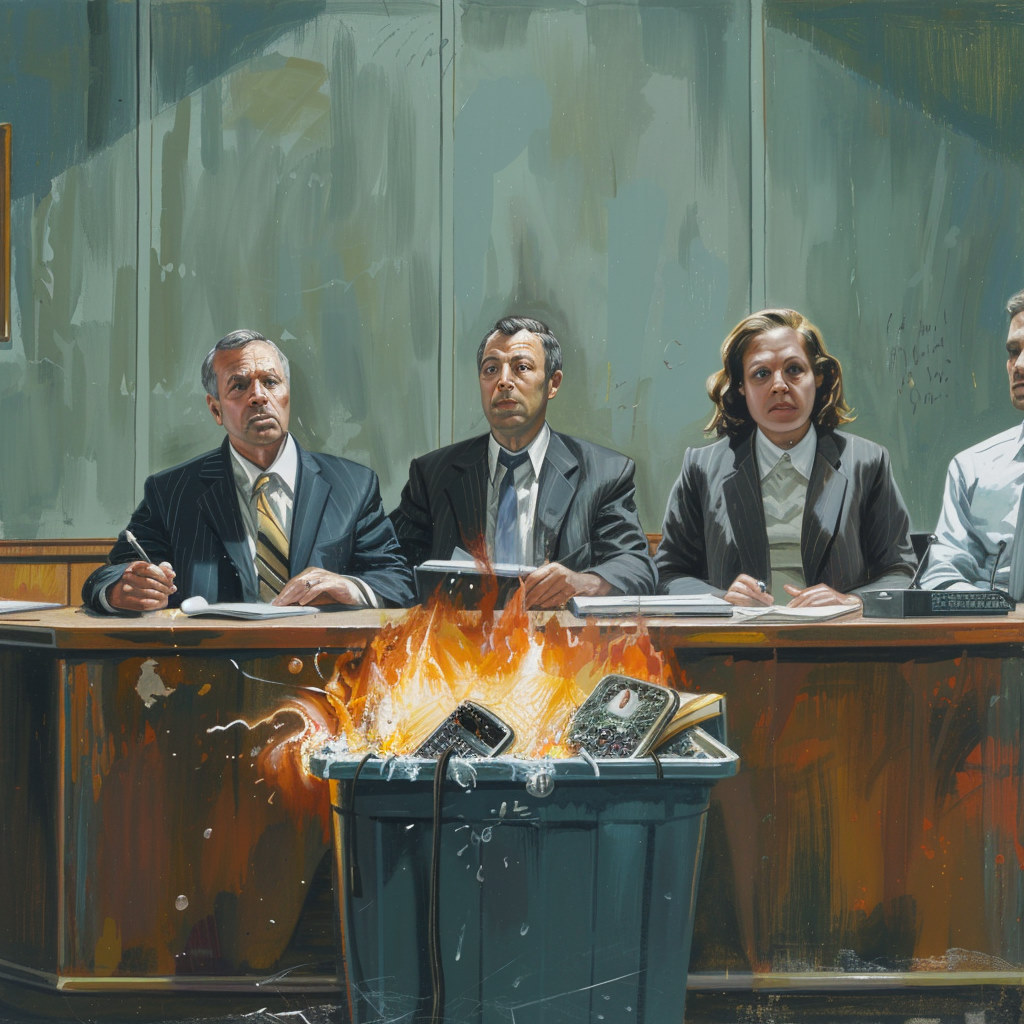Winning an employment tribunal claim is hard enough at the best of times. The last thing any claimant needs is to snatch defeat from the jaws of victory due to their own conduct. But as the stark example of Kaur v Sun Mark Ltd shows, that is exactly what can happen if a tribunal concludes you have undermined the fairness of the process by deliberately destroying or concealing relevant evidence.
The Case
The claimant had succeeded in her claims of sexual harassment, discrimination and victimisation against her former employer and others at the Employment Tribunal. Her claim was set to proceed to a remedy hearing to determine compensation. However, an issue arose regarding a notebook and mobile phone that the claimant had mentioned during the earlier liability hearing but had not initially disclosed.
The respondents had been seeking inspection of these items since May 2021 to investigate their authenticity and content. These requests had been resisted by the claimant. Then in October 2022, she stated for the first time that the items had been destroyed back in December 2020. She said the notebook had been burned by her husband with her agreement, and she had discarded the phone as it contained private photos.
The Tribunal’s Decision and Appeal
The Employment Tribunal (ET) did not accept the explanation. It concluded she had either destroyed the items in October 2022 when she realised an order for inspection was likely or was lying about the destruction. It found her conduct was unreasonable and had been designed to frustrate the fair administration of justice by preventing proper scrutiny of evidence relevant to remedy.
Concluding that the claimant’s conduct meant a fair trial of the remedy hearing was no longer possible, the ET took the rare and draconian step of striking out her successful claims in their entirety.
Ms Kaur appealed, but The EAT dismissed the appeal, upholding the ET’s decision to strike out the claimant’s remedy claim. The ET had referred itself to Rule 37 (Employment Tribunal Rules for Procedure 2013) which gives ETs the power to strike out a claim if the manner in which the claimant has conducted the proceedings has been scandalous, unreasonable or vexatious, or if it is no longer possible to have a fair hearing. The EAT agreed with the ET’s findings that the claimant’s conduct, either in destroying the evidence or lying about such destruction, prevented a fair trial and that this decision was both proportionate and appropriate.
Practical Lessons
This case is a somewhat sobering reminder of how seriously tribunals take conduct that threatens the fairness of legal proceedings, regardless of the merits of the underlying case.
There are some obvious things that leap out of this case to warn us all:
- Don’t be tempted to suppress or destroy relevant evidence, even if you think it might damage your case. The potential consequences are severe.
- If you have referred to evidence in a hearing, whether part of your internal processes or at a tribunal, assume you will be required to produce it later. Preserve it at least until you are certain all possible related litigation is concluded.
- Be very careful about advancing inconsistent or implausible explanations for missing evidence. Tribunals are highly sceptical of last minute revelations of destruction and will readily infer it was a deliberate attempt to obstruct justice.
- Stay on top of disclosure and respond promptly to requests. Ignoring or resisting them will only increase suspicion if evidence later goes missing.
- Remember that your conduct during and around proceedings is under scrutiny. Behaving unreasonably can undo an otherwise strong case. In employment law, as in many other areas, litigation is partly an exercise in credibility.
This was an unusual and extreme case, but tribunal cases aren’t just lost because notes are destroyed, far more common is the case that is lost because there were no notes, or records of meetings, phone calls etc.
Excellence starts with simple things done well. Record what is said and done. Whether it’s informal feedback given to an employee when you see an exceptional level of customer service, a team meeting to discuss sales results or a consultation on a business restructure, record it. How you record it is less important than the fact it is recorded.
You may consider workplace documentation tedious and pointless, but you won’t if you find yourself defending your decisions before a judge.

Conclusions
Record keeping is about notes, not verbatim transcripts. This is a call to do the simple things well, not make the things that need doing complicated.
If you would like to see what I can do for you and your business, whether it’s effectively using and recording management feedback or keeping records for a disciplinary investigation etc., get in touch.
If you have experiences around the importance of record keeping or simple and effective ways to make notes please share them in the comments below.


Leave a Reply